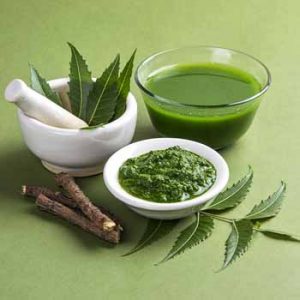
More evidence that low-calorie sweeteners are bad for your health
Studies show that artificial sweeteners can raise the risk of hypertension, metabolic syndrome, type 2 diabetes and heart disease, including stroke.

Natural Health News — A natural extract derived from India’s neem tree could potentially be used to treat pancreatic cancer, according to a new study.
Writing in the journal Scientific Reports scientists at Texas Tech University Health Sciences Center El Paso (TTUHSC El Paso) tested nimbolide, a compound found in neem leaves, against pancreatic cancer in cell lines and mice. The results showed that nimbolide can stop pancreatic cancer’s growth and metastasis without harming normal, healthy cells.
Biomedical scientists at Texas Tech University Health Sciences Center El Paso tested nimbolide, a compound found in neem leaves, against pancreatic cancer in cell lines and mice. The results revealed that nimbolide can stop pancreatic cancer’s growth and metastasis without harming normal, healthy cells.
» A substance extracted from neem leaves could be a new treatment for pancreatic cancer.
» In cancer cells in the lab and in mice nimbolide was shown to stop both the grown and spread of pancreatic cancer without harming healthy cells.
» The researchers call the result promising, but caution that more evidence is needed.
“The promise nimbolide has shown is amazing, and the specificity of the treatment towards cancer cells over normal cells is very intriguing,” says co-author Rajkumar Lakshmanaswamy, Ph.D., an associate professor in TTUHSC El Paso’s Center of Emphasis in Cancer.
Stopping cancer cells spreading
In the study, Lakshmanaswamy and his team observed that nimbolide was able to reduce the spread and invasiveness of pancreatic cancer cells by 70%.
That’s promising, the researchers say because in humans, this migration and invasion – or metastasis – of pancreatic cancer to other regions of the body is the chief cause of mortality.
Nimbolide treatments also induced cancer cell death, causing the size and number of pancreatic cancer cell colonies to drop by 80%. “Nimbolide seems to attack pancreatic cancer from all angles,” Lakshmanaswamy says.
The researchers stress that one of the most important findings is that nimbolide did not harm healthy cells in both the in vitro and in vivo experiments.
Co-author and postdoctoral researcher Ramadevi Subramani, PhD, explains, “Many people in India actually eat neem and it doesn’t have harmful side effects, which suggests that using nimbolide for pancreatic cancer will not cause adverse effects like chemotherapy and radiation typically do.”
More study needed
Pancreatic cancer has the highest mortality rate of all cancers with 94% of patients dying within five years of diagnosis. The cancer grows quickly and there are currently no effective treatments available, underscoring the importance of finding new therapies.
While the results are promising, Lakshmanaswamy says there’s still some way to go before nimbolide can be used to treat pancreatic cancer in humans.

Please subscribe me to your newsletter mailing list. I have read the
privacy statement